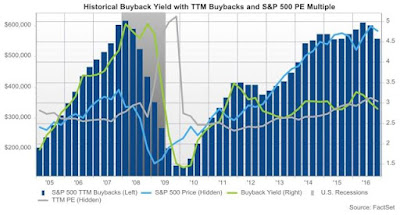 |
| Tesla Needs Some Good News As Concerns Grow |
As expected Tesla's competitors have not been sitting on their hands or surrendered the electric car market to the upstart. An article on "autoevelution" delves into how not all new Model 3 owners are happy with the quality of their new cars after the feeling of pure euphoria has passed Tesla owners have started noticing flaws. This means Tesla has been swamping its already busy service centers by rolling out flawed cars rather than slowing down production to maintain their standards. This bodes poorly for Tesla's reputation and how people feel about the brand but Tesla has decided to put quantity over quality must keep production moving. If Tesla can't produce as many good quality cars as promised then eyes will quickly turn towards the fact Tesla is burning through cash at an alarming rate. Goldman Sachs estimates the burn rate to be as high as one billion dollars per quarter this year.
It is reported that Bloomberg is tracking the Model 3 rollout with an experimental tool that estimates production using Vehicle Identification Numbers (VINs). Currently, their model estimates that Tesla is making 805, Model 3s a week, for a grand total of 10,636 cars so far and they are showing that significant improvement is about to come. This estimate is thought to be a bit low by some Tesla watchers who think it’s possible that Tesla could already be producing more than 1,000 a week and climbing. Still, for many investors Tesla’s first-quarter production failures loom extremely large. The company said at the beginning of 2018 it was already capable of building 1,000 Model 3s a week and would be cranking out 2,500 a week by quarters end. An even bigger problem is that it is impossible to forget Tesla originally had said it would get to 5,000 Model 3 sedans a week in 2017 and then on to 10,000 a week in 2018.
This explains why Tesla's unsecured bond, which has no direct claims on Tesla's asset base and depends entirely on cash flows is not behaving well. This debt which represents Tesla’s first venture in pure bonds was sold at the height of excitement about the Model 3 and amid lofty company promises over how fast they would ramp up production. Moody's rated that bond assuming 300,000 Model 3 deliveries would be made this year. Last week Tesla's $1.8bn unsecured bond, which reached a near all-time high yield of over 6.5 percent. Issued at par with a yield of 5.30 percent in August, the bond's price has been grinding downward. This means its yield has been moving higher. Again, the blame is being placed on the botched rollout of Tesla's Model 3. It has been so troubled that Tesla was forced to stop production for a week in February in an effort to address "bottlenecks" slowing the line.
 |
| Debt Has Risen While Free Cash Falls (click here) |
Some $1.7 billion of this debt consists of three convertible bonds falling due between this coming November and the next one. Almost half of it that was inherited from SolarCity and is very far out of the money, with conversion prices starting at $560. The remainder of it, a $920 million convertible due next March, has a conversion price of just under $360. Tesla closed Friday trading at around $302. The good news for Tesla is that compared to its market cap the company still has relatively little debt and in the past when Tesla sold $546 million of auto lease-backed bonds demand was huge. These ABS bonds were tied to leases of Model X and Model S vehicles. These investors had to weigh uncertainties about the resale value of electric cars where very little data exist against the fact that lessees on average had high credit scores and the bonds mature in less than three years.
While we can debate what has brought Tesla to where it is today we must certainly give much of the credit to QE, tax incentives and a slew of other factors that would be difficult to recreate at any other time in history. A recent Seeking Alpha article pointed out that in a head-to-head comparison in Motor Trend, three reviewers compared the Tesla Model 3, Chevy Bolt, and Nissan Leaf in a test, and only one person picked the Tesla. Many people would be surprised to know that the reviewers were comparing the base versions of the Leaf and Bolt, which cost $30,000-35,000, to the fully loaded Model 3 that costs more than $60,000, all this comes at a time when a fair number of unflattering articles have begun to surface questioning Elon Musk's ability to hold all his ventures together. This indeed raises the question of how long those shareholders enamored with Tesla or creditors will be willing to hang on if the stock begins to tank.
Footnote; The articles below look at several different aspects of the Tesla story and why the car company is in itself a cultural phenomenon.
http://brucewilds.blogspot.com/2017/02/elon-musk-and-tesla-motors-overview.html
http://Traits Jeff Bozos, Elon Musk, And Mark Zuckerberg Share html
http://Elon Musk Continues to Razzle Dazzle The Masses html
























